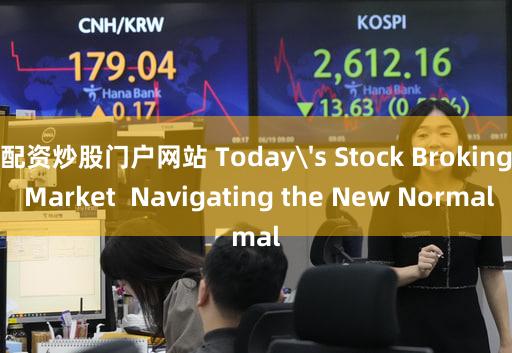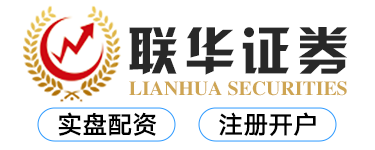
Today's Stock Broking Market: Navigating the New Normal
Meta Description: Dive into the latest trends shaping today's stock broking market. We explore regulatory changes, technological advancements, investor behavior, and emerging opportunities, offering insights for both seasoned professionals and newcomers.
Is the Stock Broking Market Ready for its Close-Up?
Whoa, hold onto your hats, folks! The stock broking landscape is buzzing right now – a wild mix of opportunity and uncertainty. It's a fast-paced, ever-evolving world where the only constant is change. Just a few years ago, the traditional brokerage firm ruled the roost. Remember those hushed, mahogany-paneled offices? Now? Forget it! We're talking sleek mobile apps, algorithmic trading, fractional shares, and a globalized market accessible from your smartphone. It's a democratization of finance, a leveling of the playing field that's both exciting and, let's be honest, a tad nerve-wracking. This isn't your grandpappy's stock market; it's a digital jungle brimming with both potential profits and pitfalls. Understanding the latest dynamics is crucial – whether you’re a seasoned investor looking to sharpen your edge, a newbie cautiously dipping your toes in, or even just a curious observer wanting to understand the forces shaping our global economy. This article will cut through the noise, presenting a clear, concise, and insightful look at the current state of the stock broking market, offering practical advice and actionable strategies for navigating this thrilling, yet complex, environment. We’ll explore the impact of regulatory changes, the rise of fintech disruptors, shifting investor behavior, and the emerging opportunities and challenges that lie ahead. So buckle up, because it's going to be a ride!
Today's Stock Broking Market: Recent Trends and Developments
The stock broking industry is undergoing a period of significant transformation, driven by technological advancements, regulatory changes, and evolving investor behavior. Several key trends are shaping the landscape:
1. The Rise of Fintech: Fintech companies are disrupting traditional brokerage firms with user-friendly mobile apps, low-cost trading fees, and innovative investment tools. They're attracting a younger generation of investors who are comfortable with technology and expect a seamless, digital experience. This competition is forcing established players to adapt and innovate to remain competitive.
2. Regulatory Scrutiny and Compliance: Increased regulatory scrutiny is impacting the industry, particularly concerning data privacy, cybersecurity, and anti-money laundering (AML) compliance. Brokers are investing heavily in technology and processes to meet these stricter requirements. This can be a significant cost, but it's vital for maintaining trust and ensuring the integrity of the market.
3. Algorithmic and High-Frequency Trading (HFT): Algorithmic trading is becoming increasingly prevalent, with sophisticated algorithms making trading decisions at lightning speed. While this can offer advantages in terms of speed and efficiency, it also raises concerns about market manipulation and fairness. HFT, a subset of algorithmic trading, is particularly controversial.
4. The Growing Importance of ESG Investing: Environmental, Social, and Governance (ESG) investing is gaining significant traction, with investors increasingly considering the ethical and social impact of their investments. Brokers are responding by offering ESG-focused investment products and educational resources. This trend reflects a growing societal awareness of sustainability and responsible investing.
5. Fractional Shares and Democratization of Investing: The ability to buy fractional shares, allowing investors to purchase small portions of expensive stocks, has significantly broadened access to the market. This lowers the barrier to entry for many, making the stock market more accessible to everyday people.
6. Increased Use of AI and Machine Learning: AI and machine learning are being used to enhance trading strategies, personalize investment advice, and improve risk management. This technology is transforming how brokers operate and interact with clients, but requires cautious adoption due to inherent biases and potential for misinterpretation.
7. Global Market Integration: The stock broking market is becoming increasingly globalized, with investors able to access markets around the world with relative ease. This creates opportunities for diversification and higher returns but also introduces new complexities regarding regulatory compliance and currency fluctuations.
Table: Key Trends in the Stock Broking Market
| Trend | Impact | Challenges | Opportunities | |--------------------------|------------------------------------------------------------------------------|-------------------------------------------------------|------------------------------------------------------| | Fintech Disruption | Increased competition, lower fees, improved user experience | Maintaining profitability, regulatory compliance | Innovation, expansion into new markets | | Regulatory Scrutiny | Enhanced security, increased compliance costs | Compliance costs, potential for stifling innovation | Enhanced trust and market integrity | | Algorithmic Trading | Increased speed and efficiency | Market manipulation, fairness concerns | Enhanced investment strategies, greater efficiency | | ESG Investing | Growing demand for sustainable investment options | Identifying truly sustainable investments | New market segments, positive social impact | | Fractional Shares | Increased accessibility to the market | Potential for increased volatility | Broader investor base, higher market liquidity | | AI and Machine Learning | Improved trading strategies, personalized advice | Data bias, ethical concerns | Better risk management, more personalized services | | Global Market Integration | Greater diversification opportunities | Regulatory complexities, currency fluctuations | Access to global markets, higher potential returns |
Navigating the Challenges and Capitalizing on Opportunities
配资实盘查询The changing landscape presents both challenges and opportunities. Brokers need to:
- Embrace technology: Investing in cutting-edge technology is crucial for staying competitive and meeting evolving customer expectations. This includes robust cybersecurity measures.
- Adapt to regulatory changes: Staying abreast of regulatory changes and ensuring compliance is essential for maintaining trust and avoiding penalties.
- Focus on customer experience: Providing a seamless and personalized customer experience is key to attracting and retaining clients.
- Diversify offerings: Offering a diverse range of investment products and services can cater to a wider range of investor needs and preferences.
- Invest in talent: Attracting and retaining skilled professionals is vital for success in this competitive market.
Frequently Asked Questions (FAQs)
Q1: Are online brokerage accounts safe?
A1: Reputable online brokerage accounts employ robust security measures to protect client funds and data. However, always ensure you're using a regulated and licensed platform.
Q2: What are the advantages of using a robo-advisor?
A2: Robo-advisors offer automated portfolio management at lower costs than traditional advisors, making investing more accessible to beginners. However, they may lack the personalized attention of a human advisor.
Q3: How do I choose the right brokerage firm for my needs?
A3: Consider factors like trading fees, available investment options, platform user-friendliness, customer service, and regulatory compliance.
Q4: What are the risks associated with algorithmic trading?
A4: Algorithmic trading carries risks such as flash crashes, market manipulation, and unexpected system failures. It's not a get-rich-quick scheme.
Q5: What is the future of ESG investing?
A5: ESG investing is likely to continue growing in popularity as investors increasingly prioritize sustainability and social responsibility.
Q6: How can I stay informed about the latest trends in the stock broking market?
A6: Stay updated by following financial news outlets, attending industry conferences, and networking with other professionals.
Conclusion
The stock broking market is a dynamic and exciting arena, continuously evolving to meet the demands of a technologically advanced, globally connected world. Navigating this landscape requires a blend of financial acumen, technological savvy, and adaptability. By staying informed, embracing innovation, and understanding the evolving regulatory environment, both investors and brokers can position themselves for success in this fast-paced industry. Remember, it's not just about the money; it's about the journey, the learning, and the potential to grow – both financially and personally. So, keep learning, keep adapting, and keep investing wisely!
文章为作者独立观点,不代表财盛证券观点






